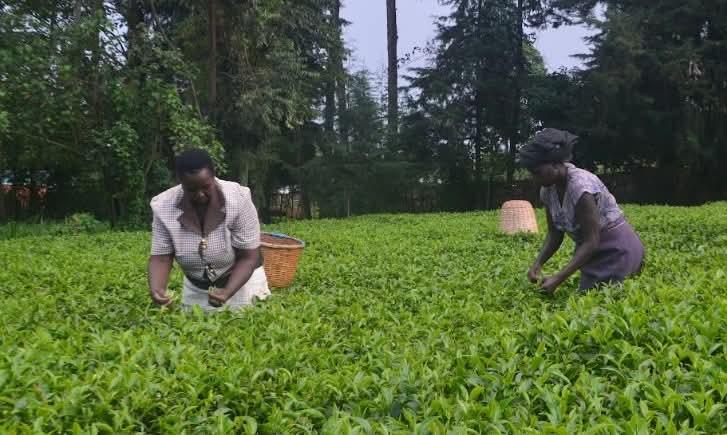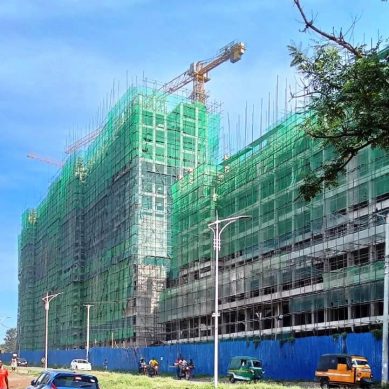
Kenyan government has been urged to step in and cushion tea farmers against fluctuating global market prices after this year’s tea bonus dropped by more than Ksh10 per kilo, leaving thousands of farmers in the country in distress.
Leaders from tea-growing zones made the call during a bottom-up economic empowerment forum at General Kago Stadium in Kangema Constituency on Friday. The occasion was graced by Deputy President Kithure Kindiki.
Members of Parliament present warned that unless immediate action is taken, the country risks pushing farmers into poverty and undermining rural economies. The leaders noted that Murang’a, one of the country’s tea-growing strongholds, depends heavily on agriculture for its economic survival.
They said stabilising prices of tea, coffee and milk is key to the success of the government’s bottom-up economic transformation agenda (BETA).
Legislators also urged President William Ruto to prioritise interventions for farmers, noting that stabilising rural economies would not only sustain livelihoods but also curb rural-urban migration.
Nominated MP Sabina Chege said value addition at factory level would shield farmers from unpredictable global pricing shifts.
“In this region we have 11 tea factories, and if value addition is done at factory level, it will ensure that prices do not fluctuate from time to time.
As it stands, value addition is being done by private entities, which means our farmers will always be affected and, with time, they will be unable to even support their children through school,” she said.
She noted that that this year’s drop is so significant that some disgruntled farmers are already thinking of alternative means of making a livelihood as opposed to tea farming.
Notably, disparities in pay-outs across regions have been highlighted as farmers in Mt Kenya will receive between Ksh26 and Ksh57 per kilo, while those in Rift Valley and South Nyanza will only get between Sh10 and Ksh32 per kilo.
Kangema MP, Peter Kihungi and Nominated Senator Veronica Maina echoed similar sentiments while calling for structured interventions that go beyond seasonal bonuses.
“We cannot allow our farmers to sink into poverty because of unpredictable market prices and that is why we need structured interventions.”
“This must include access to affordable credit, guaranteed minimum returns and investment in local value addition so that farmers can earn from their sweat,” Kihungi said.
Mathioya MP Edwin Mugo appealed to the government to make agriculture attractive again for young people.
“Tea, coffee and milk remain the backbone of this region’s economy, yet many youths are abandoning farming because the returns do not match the effort. It is time we cushion farmers and attract the next generation into agribusiness through better pricing and processing policies,” he said.
The impact is already being felt at household level. Charles Mwangi, a smallholder farmer, said the pay-out was a major blow and added that he was still reeling from the shock of the pay-out announcement.
“We are very disappointed by the prices this year because we had loans that we will not be able to service; this loan I had used to take my son to college,” he said.
“In fact, I am considering uprooting the tea bushes for an alternative crop yet my family solely depends on tea,” Mwangi said.
Mwangi revealed that last year they received Ksh51 per kilo, but this time round they will only receive Ksh33 per kilo.
“This is a significant drop considering the cost of operations, like farm inputs, transport and labour has remained high thus we will remain trapped in debts for a long time.”
- A Tell Media / KNA report / B Florence Kinyua







